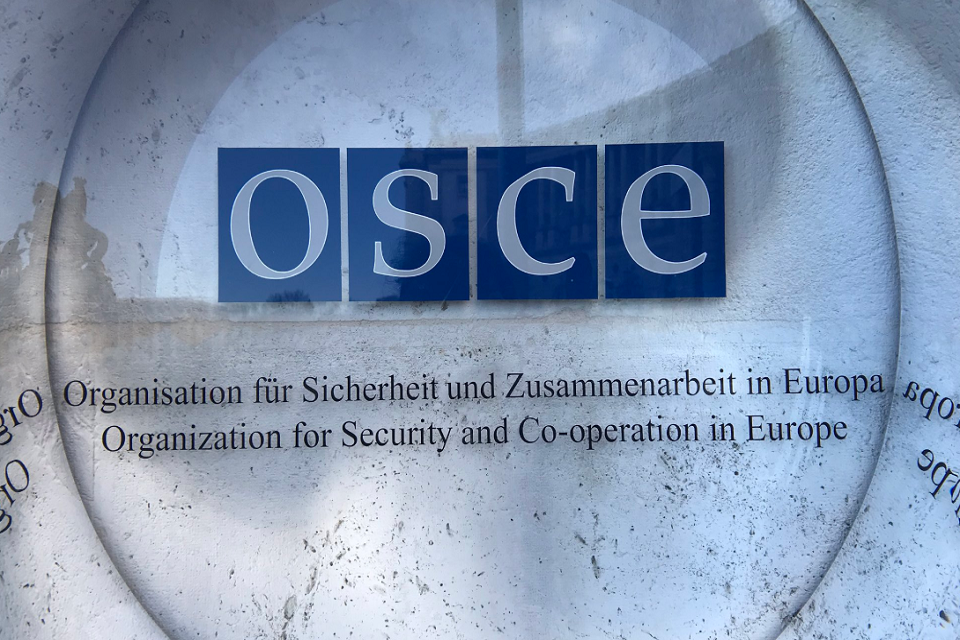
Full, equal and meaningful participation of women demystified: UK statement to the OSCE
Published By GOV.UK [English], Wed, Sep 28, 2022 7:20 AM
I would like to thank Her Excellency Hadja Lahbib and the four panellists for their interventions. Hugely informative to the discussion today.
Mr Chair, as Colonel Romanova has so eloquently set out, the conflict in Ukraine has underlined the ongoing importance of today’s topic. We have already heard of the thousands of women serving in the Ukrainian Armed Forces to defend their homeland, of whom many are serving at or near the frontlines. Beyond service in the armed forces, in times of war, women are often the first responders, stepping up to organise and serve their communities. This is true in Ukraine, where women have been instrumental to the humanitarian, political, and security efforts in the defence of their country, including the collection of evidence to help bring the perpetrators of war crimes to account. The world has watched in horror as overwhelming evidence has emerged of heinous atrocities committed by the Russian Armed Forces against civilians, a large majority of them women. The UK has committed up to £2.5m this year to support Ukraine to deliver justice for these crimes, including sexual violence, through the Atrocity Crimes Advisory Group.
The UK is determined to ensure the full, equal and meaningful participation of women in our own Armed Forces. Women have served in the British Armed Forces for over a century. Since 2016, women have been able to serve in Ground Close Combat roles. And since 2018 they have been able to serve in any Armed Forces role, including that of the Special Forces. And as of last year, around sixteen thousand women are serving in the UK Regular Armed Forces – about 11% of the total strength. And of that 13.6% of women officers. Our Ministry of Defence has set a Level of Ambition to achieve a 30% inflow of women to the Armed Forces by 2030 – but this recognises that this must be combined with a greater focus on retention, inclusion and advancement into leadership positions. Following the report last year by the Defence Sub-Committee on Women in the Armed Forces, the Ministry of Defence has enacted new measures. I would just like to highlight three of these today:
Firstly, the Ministry published three new measures in July on preventing and addressing sexual exploitation. The Ministry has combined these with new trainings, transforming the Service Complaints Reform, setting up an independent Defence Service Crimes Unit and publishing statistics to improve transparency. Tackling all types of harassment, including sexual harassment, is important to creating an inclusive working environment.
Secondly, the Servicewomen’s Health Improvement Focus Team (SHIFT) was established to deliver key women’s health policies and initiatives. This ranges from procuring personal hygiene products, to starting a conversation through a series of blogs on women’s health – normalising discussion of women’s health topics. This conversation has supported the wellbeing of servicewomen, and helped others to better understand and support their colleagues.
Thirdly, all branches of the Armed Forces have made amendments to the uniform and clothing that address women’s sizing, body shape and body changes. This includes the development of the Narrow Scalable Tactical Vest (STV) and is part of UK efforts to ensure that our soldiers’ body armour is fit for purpose, improves comfort and represents the modern UK military, where men and women serve on equal terms.
Mr Chair, the UK is transparent about our national efforts and provides full information, including in our National Action Plan. The UK will launch its fifth National Action Plan later this year, in which will continue the important tradition of reporting to the UK Parliament. This transparency is also critical at the international level to hold us all to account. Our annual voluntary report on Women, Peace and Security under the OSCE’s Code of Conduct on Politico-Military Aspects of Security is an important method of sharing information and best practice on an issue where we can all learn from each other.
Mr. Chair, I wish to conclude by highlighting again the importance of the Women Peace and Security Agenda. As experience has taught us, the full, equal and meaningful participation of women leads to better outcomes during and after conflicts. The joint statement supported by 53 of the 57 participating States at the Ministerial Council last year shows the overwhelming support for doing so. And as Russia’s invasion of Ukraine reminds us daily – we have a clear moral and practical imperative to act.
Press release distributed by Media Pigeon on behalf of GOV.UK, on Sep 28, 2022. For more information subscribe and follow